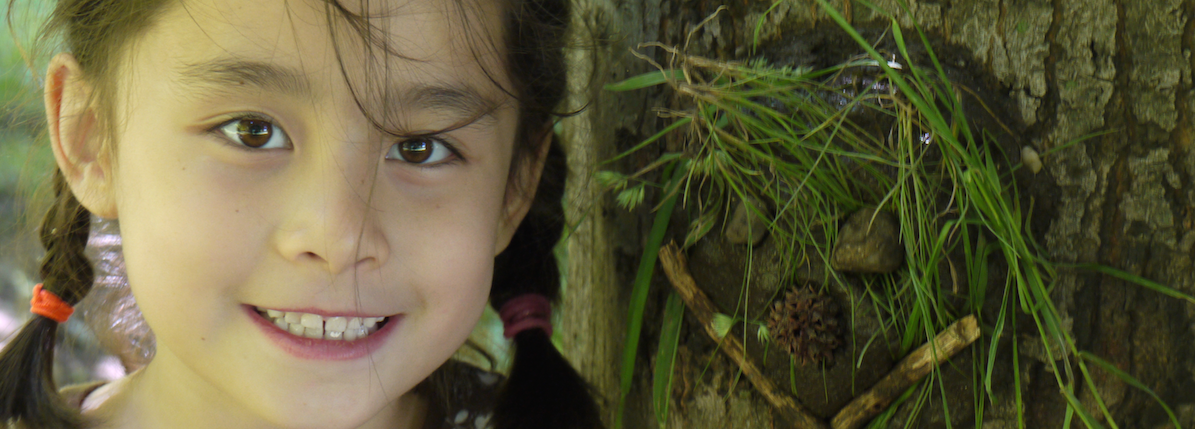Celebrate a Green Space
-
Age: 0 to 8+
-
Time: 1 hour+
-
Materials: varies
- Skills: Naturalist, Active Lifestyle, Self Esteem
Green Space Activity for Kids
Whether your family’s favorite green space is a National Park or the corner lot, you probably hope your kids learn to appreciate and, ultimately, protect natural spaces. Most of us also would love for our kids (and ourselves) to feel connected to a community of people who share our values.
So, try taking the time as a family to do something and, if possible, engage some friends to help you, to celebrate your local green space. No matter how you do it or how big or small the action or the group of actors you engage, involve your kids and the experience can be transformative.
We went through these steps with our girls, trying to find ways to celebrate Prospect Park here in Brooklyn, one of the loveliest urban, green spaces on the planet. Our oldest drove a lot of the thinking, and the whole process has helped us mobilize our local Tinkergarten peeps to join in a 147th Birthday party for the park. Give the steps a try and come back to share what action you take in your neck of the woods.
The Guide
- Talk as a family about why you all love your green space: Even if you stop here, you’re teaching your kids to value nature. To make this more concrete, actually make a list and keep adding to it. Kids get excited about how many things you can add (and the counting practice can't hurt either).
- Brainstorm and make a plan: Talk as a family about what you can do to celebrate and show thanks for your green space. A dinner-time brainstorm session with our four-year-old generated these ideas and more.
- Thank the people who care for your space: Track down the individual, group or municipality in charge of tending to your local green space. As a family, draft a letter and/or draw pictures to show your thanks for the hard work they do. Send it in the mail or, better yet, deliver to their offices.
- Give your time as a family: Find out how to volunteer to help with conservation efforts in your park or local area. Give of your time, and you walk the walk. Plus, if your local park gives meaningful work to volunteers, volunteering becomes a powerful way for kids to get their hands dirty, connect to nature, and develop persistence and grit.
- Throw a party and get people to celebrate with you: Find out when your local park first opened and throw your park a birthday party. We happened to discover that Prospect Park first opened to the public on October 19th, 1867. So, this October 19th, we’re throwing a Happy 147th Birthday party for the Park, hoping to get enough friends out to make and fly 147 wind flags in celebration. Local kids and families have been dyeing fabric and helping us gear up for a birthday party full of flag making and good times.
Whatever you choose to try, it can be whimsical. It should be fun. If kids see the adults taking the time to honor nature and enjoying ourselves as we do it, they’ll remember it and, better yet, want to make a habit of doing it too.
Why is this activity great for kids?
In today’s world, we change jobs, homes and neighborhoods frequently. And yet, both research and common sense tell us that people who feel part of a community feel support, a sense of belonging and a sense of connection, which all correlate with stronger self esteem, social skills and relationships. Kids with these kinds of community roots are less likely to fall victim to rough social traps like bullying or peer pressure.
Today, many of us also connect to larger, more virtual communities based on common interests and mindsets. This kind of event helps kids connect to both their local community and to a wider circle of people who actively value nature—a community that we hope gets stronger in their lifetime.
If you follow research on gratitude, learning to show thanks is good for our bodies, our minds, and our relationships. The more you practice as a family, the more likely your kids will pick up the good habit.
Finally, overall visits to National Parks by Americans have dropped by more than 25 percent since 1987. Worse yet, increasing numbers of children surveyed for attitudes towards nature report an indifference or even an aversion. Such trends leave us and nature advocates wondering who is going to care about our natural spaces in generations to come? Teaching them to care about natural spaces will, hopefully, make kids likely to protect and fight for these treasures when their generation takes over the reins.


